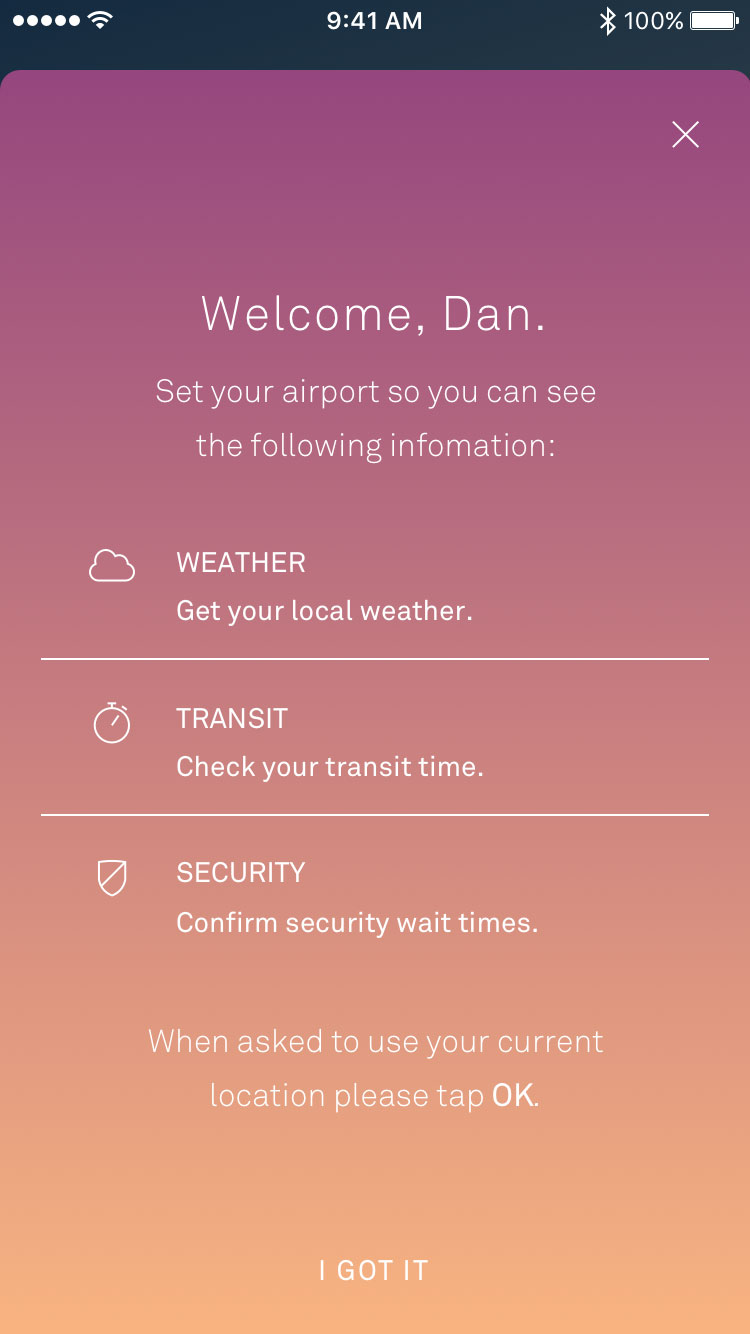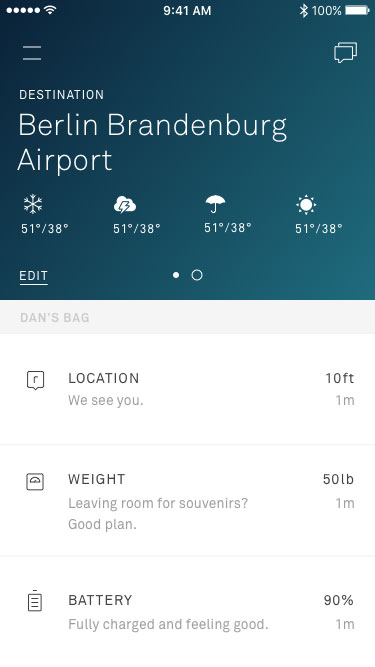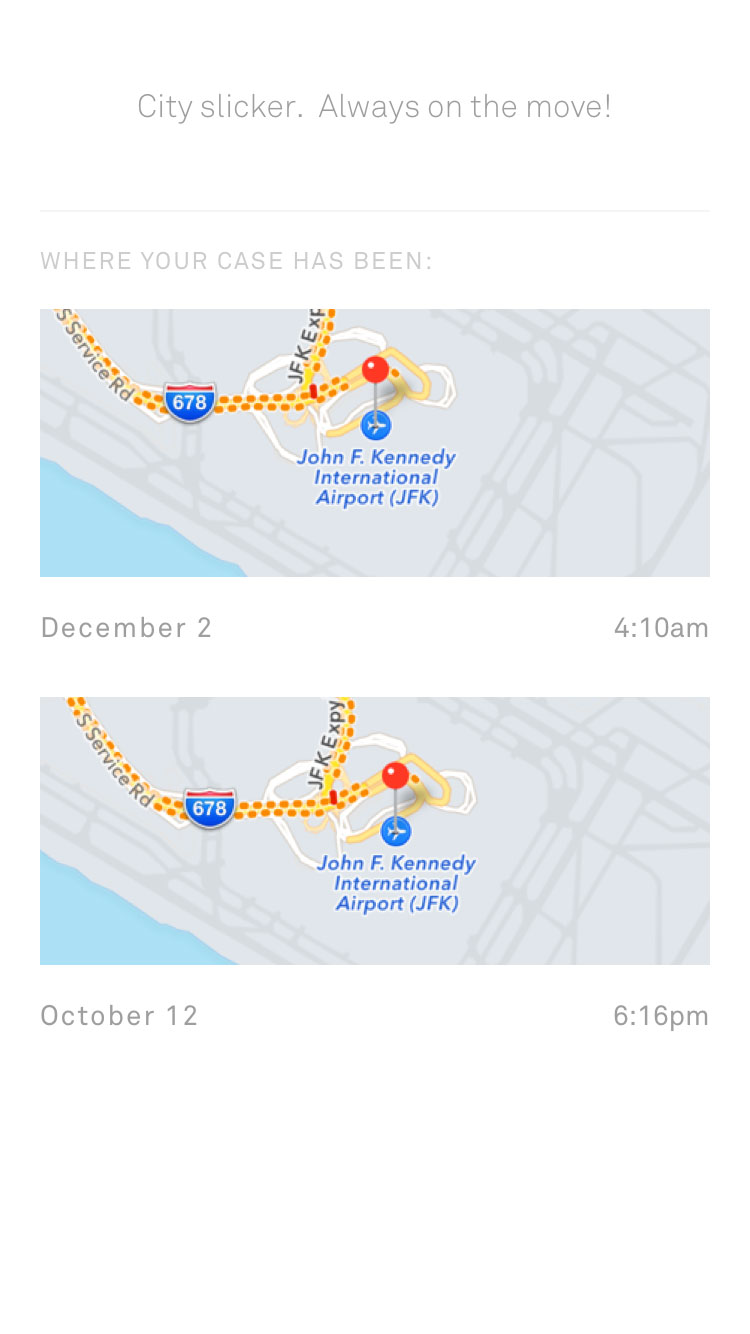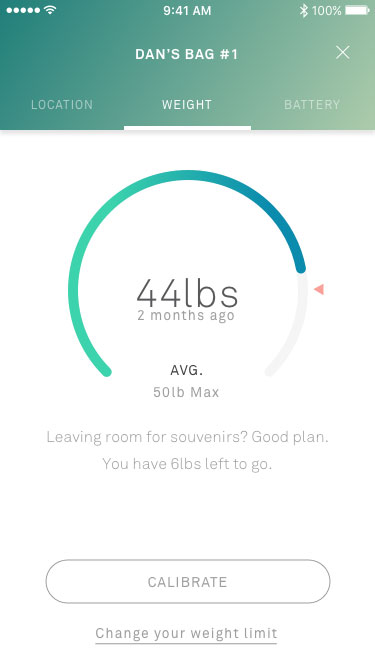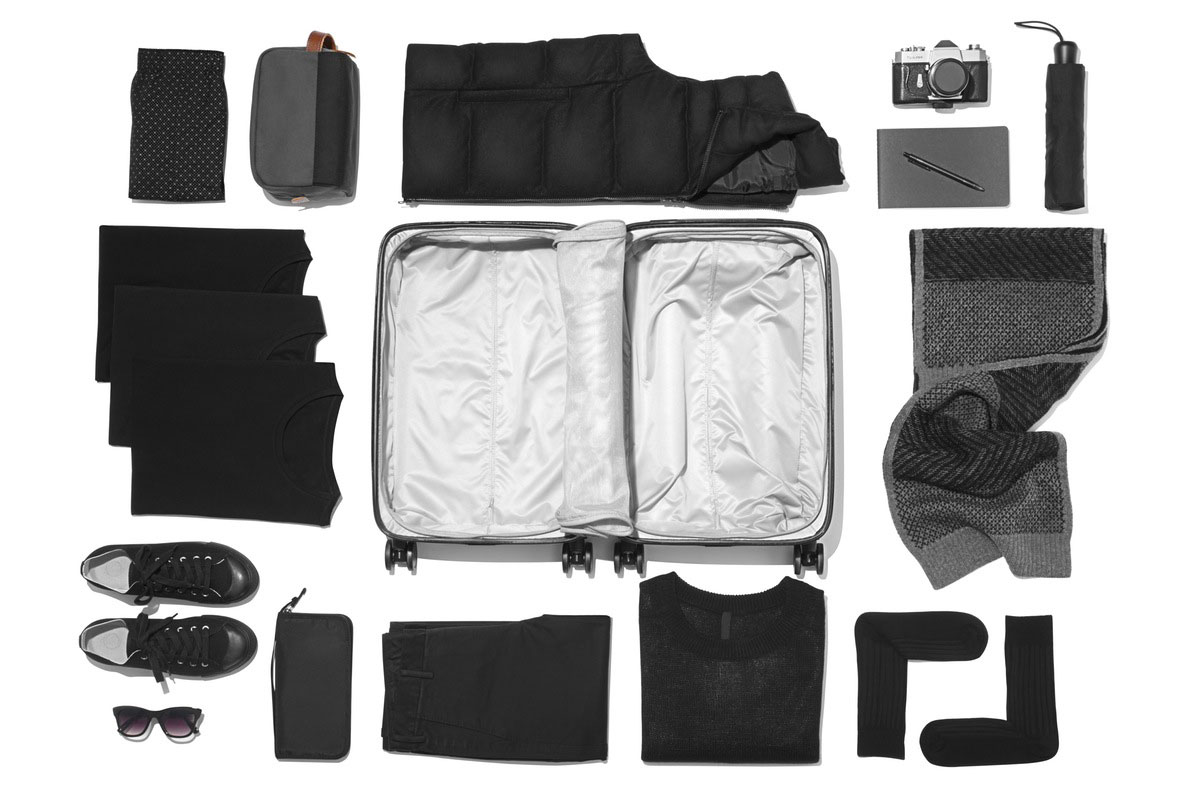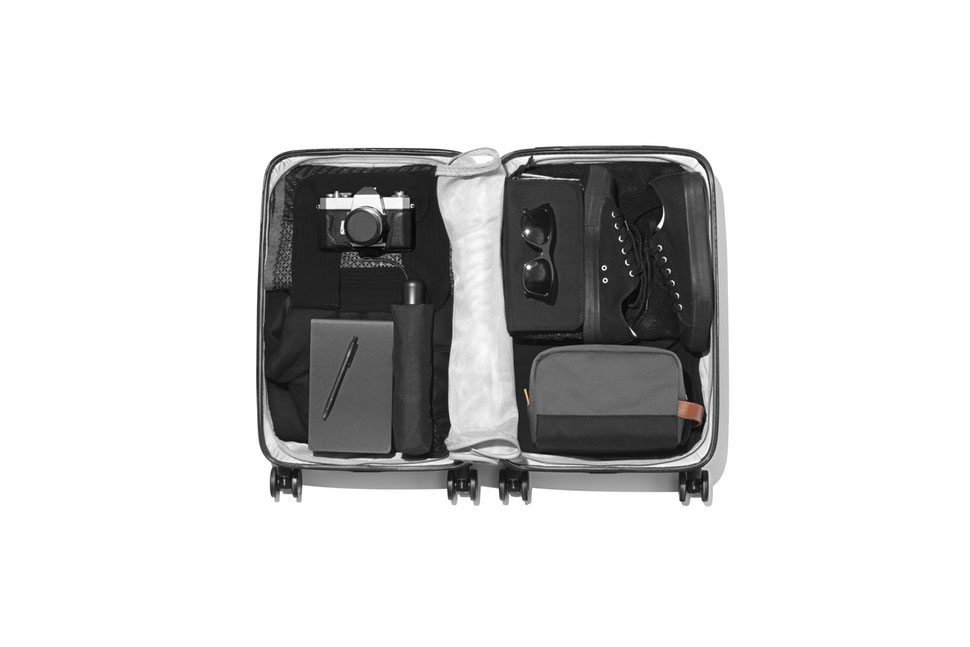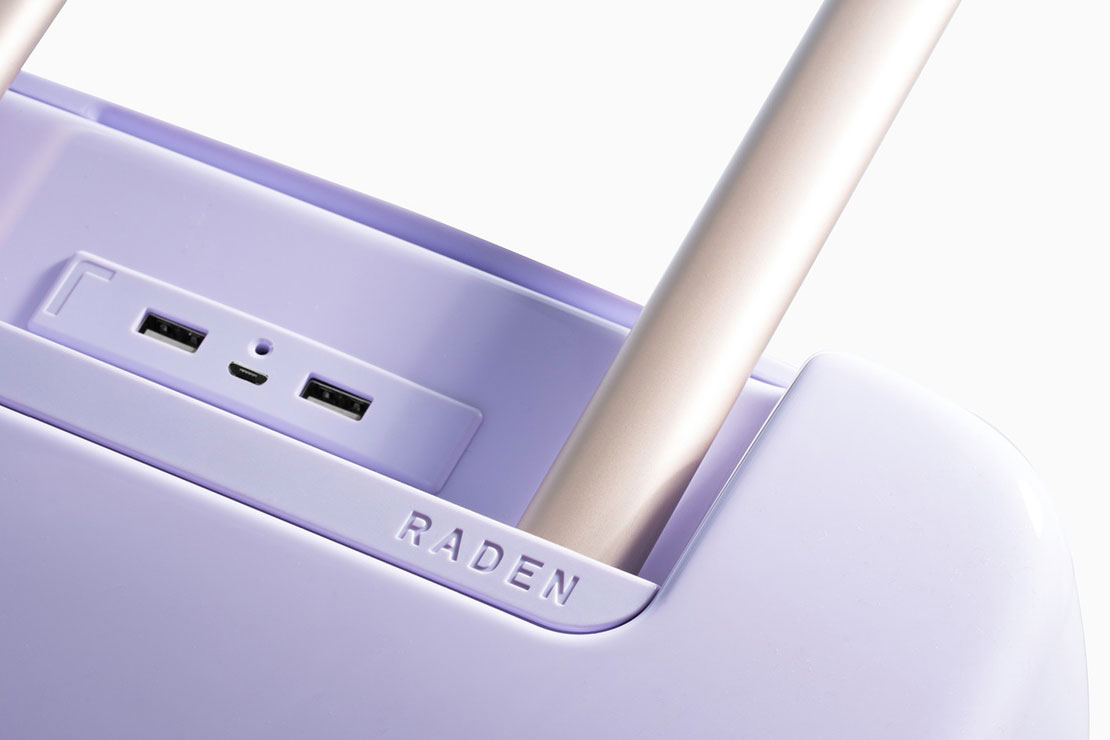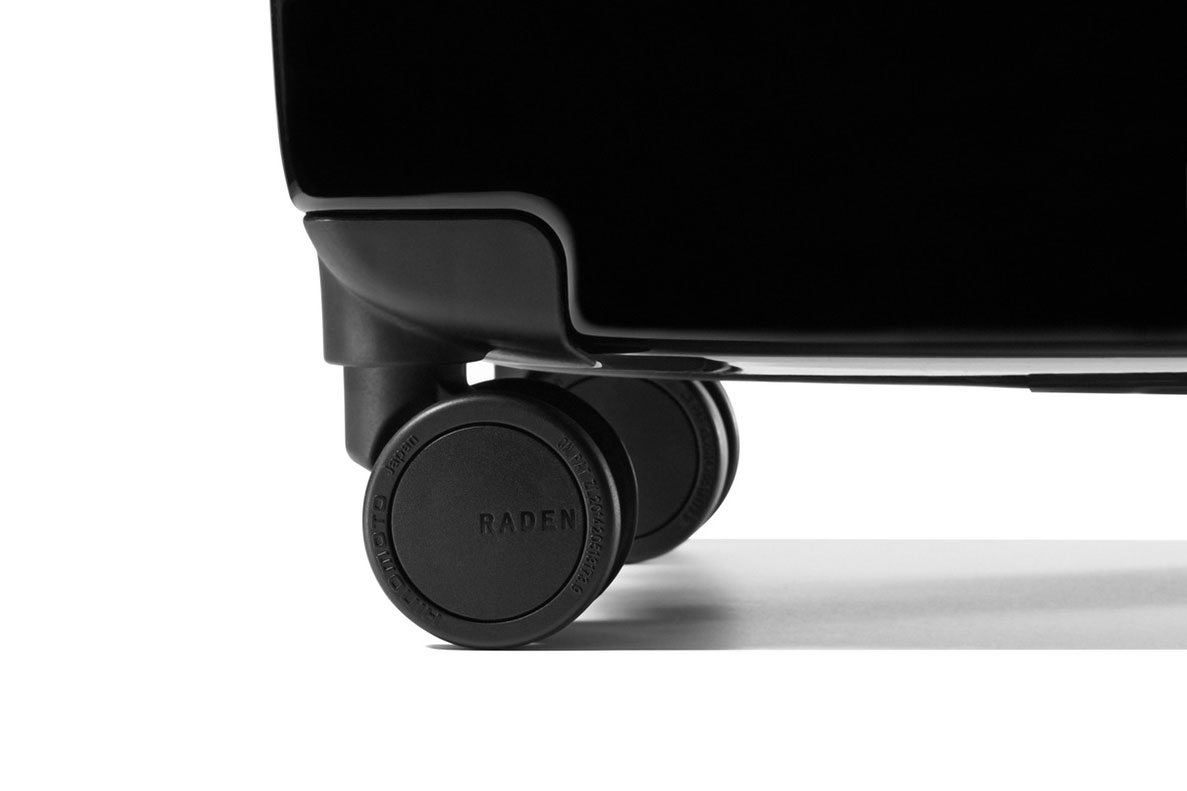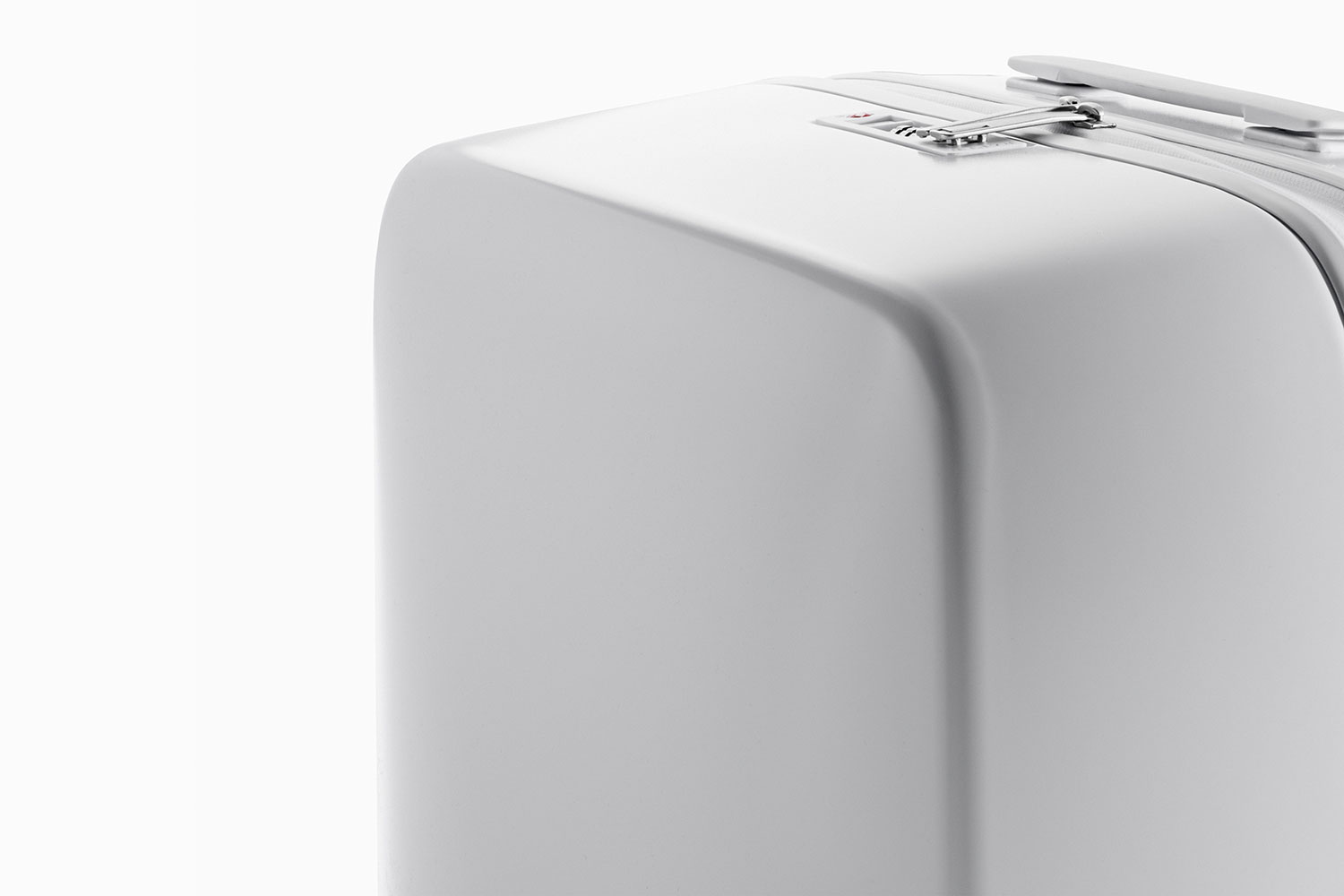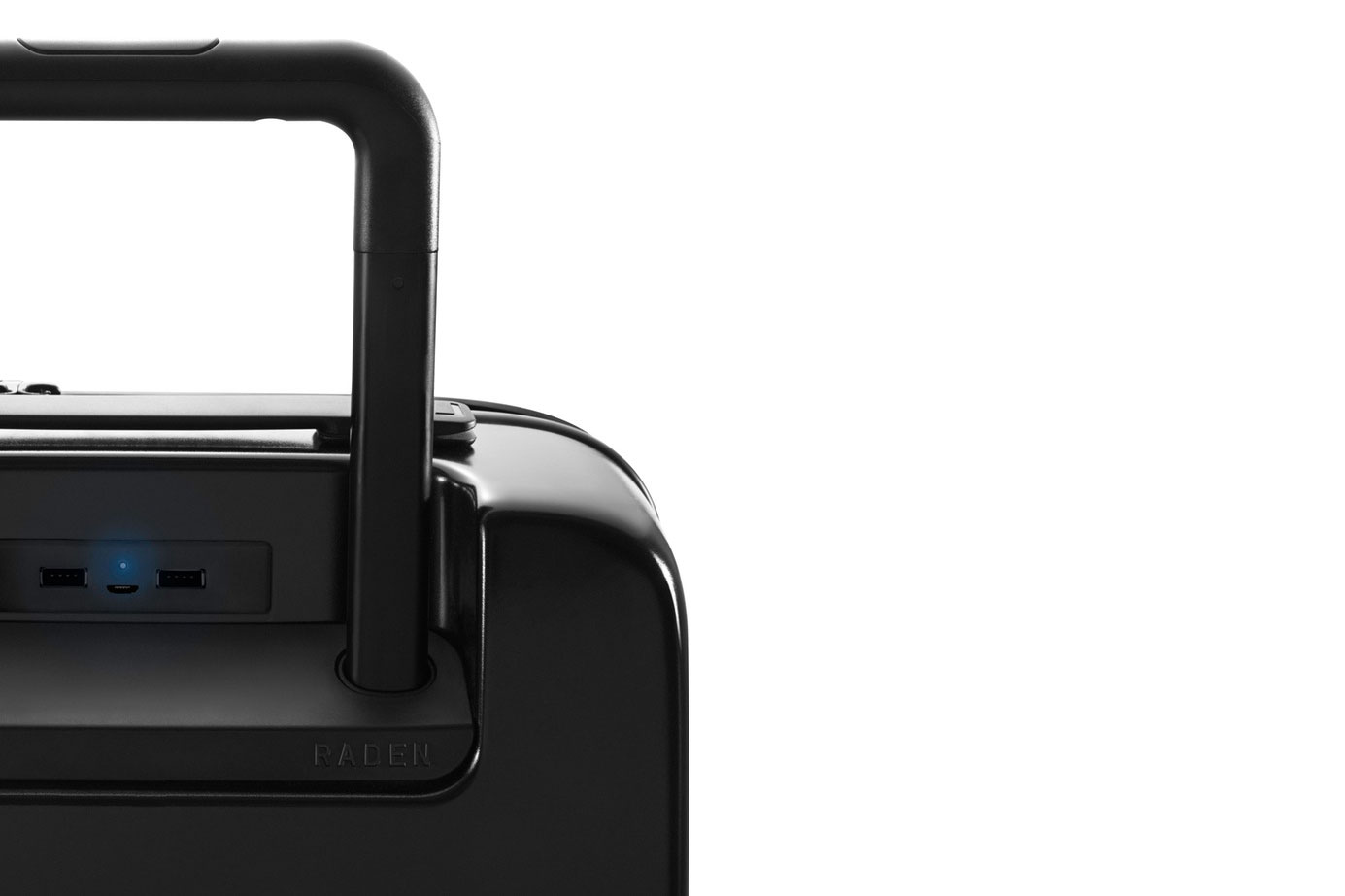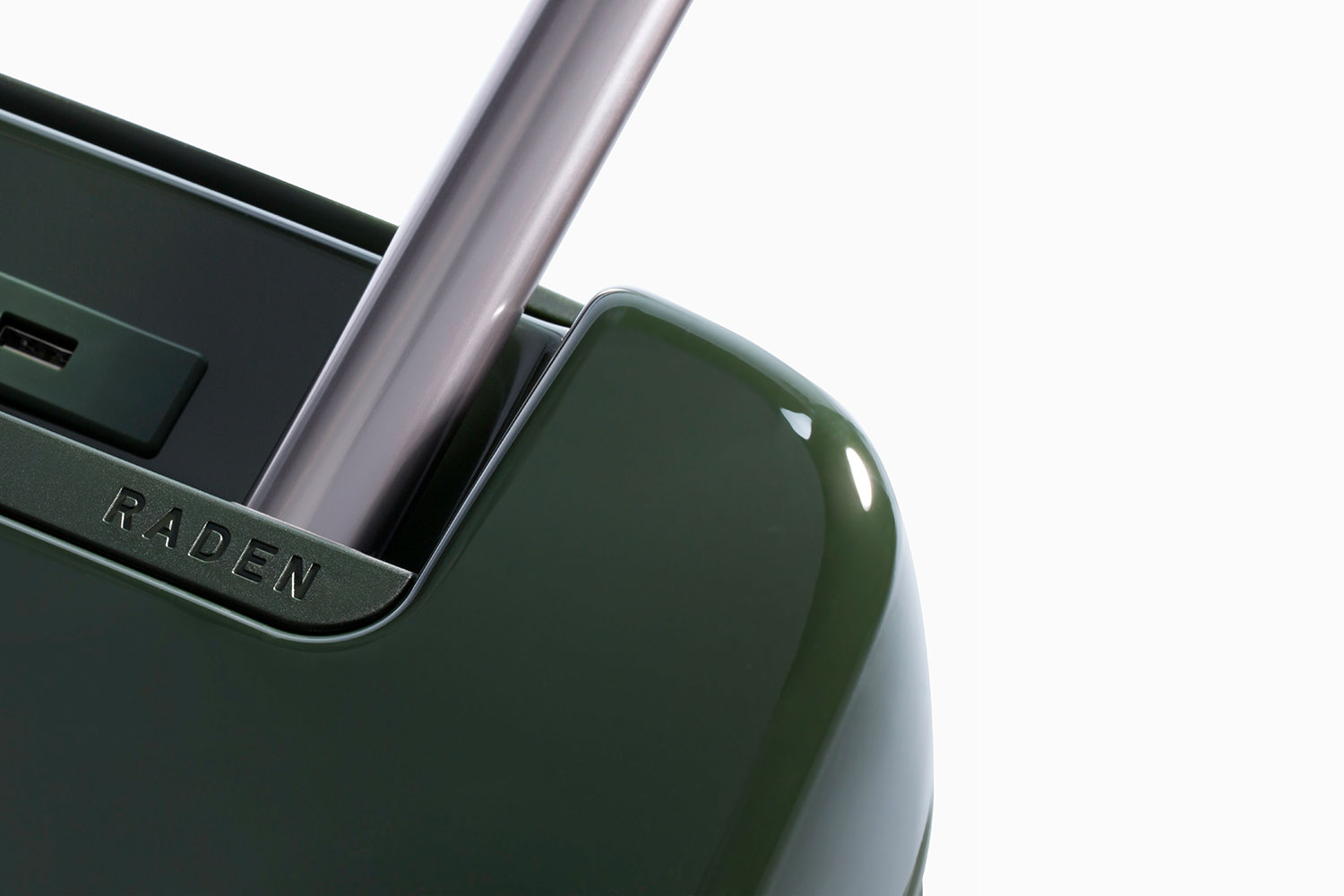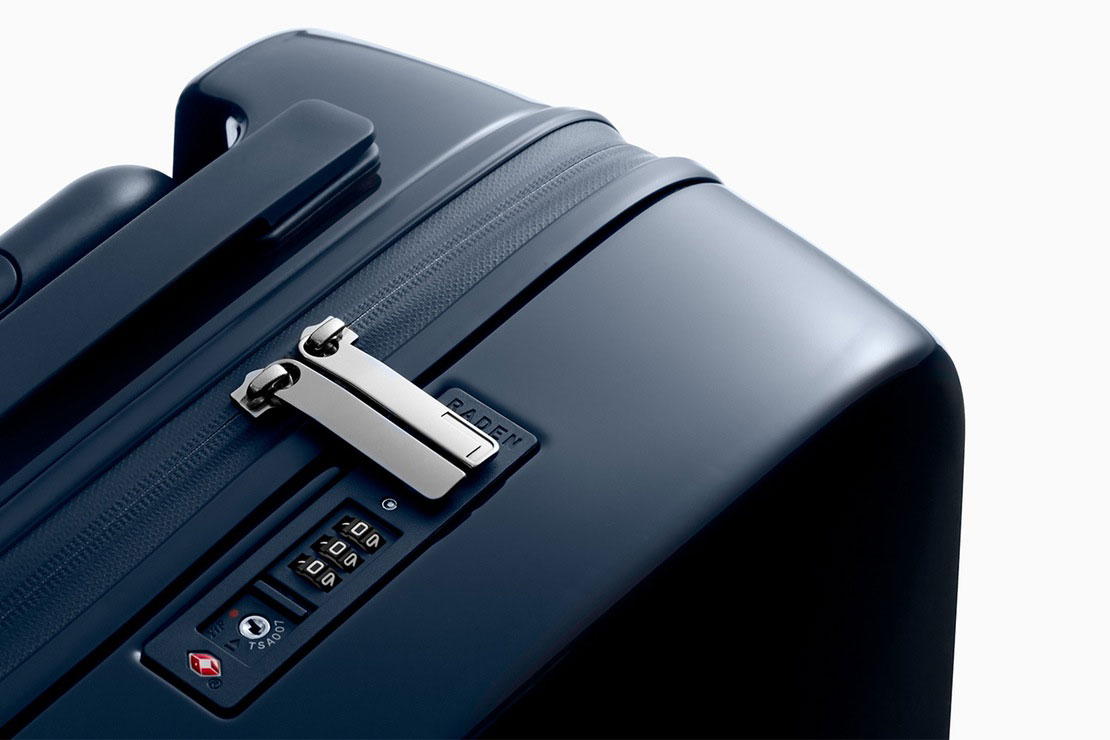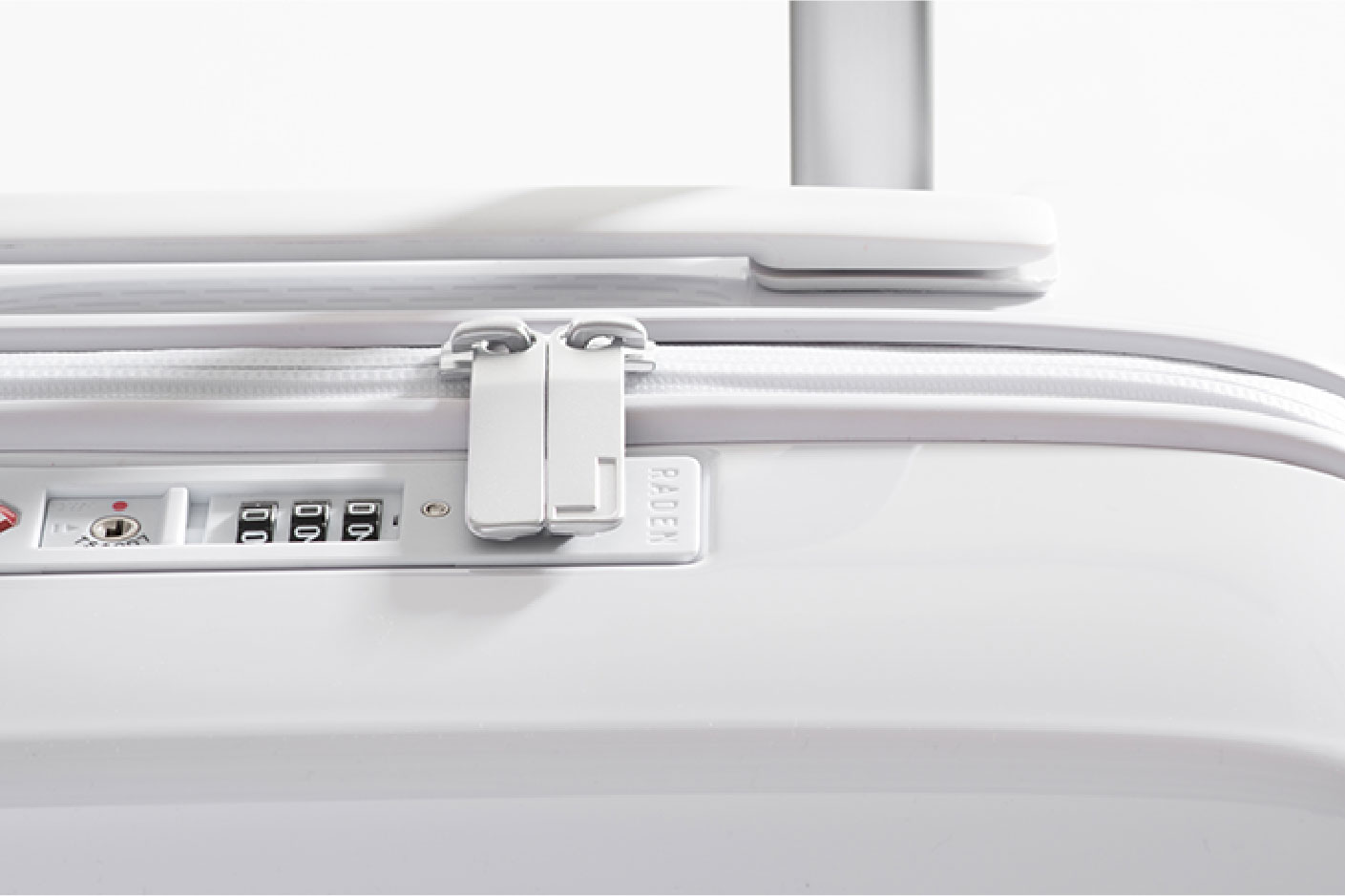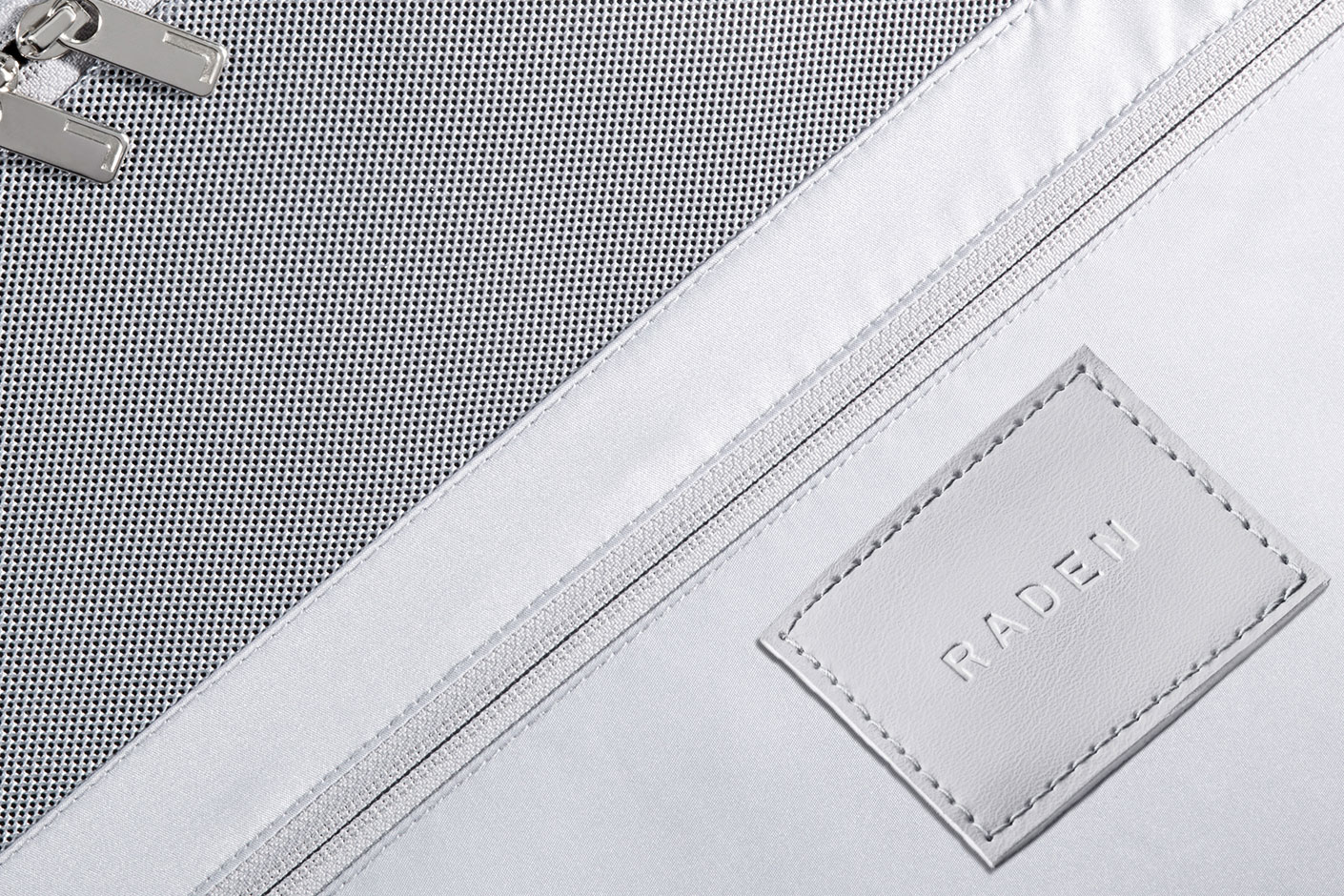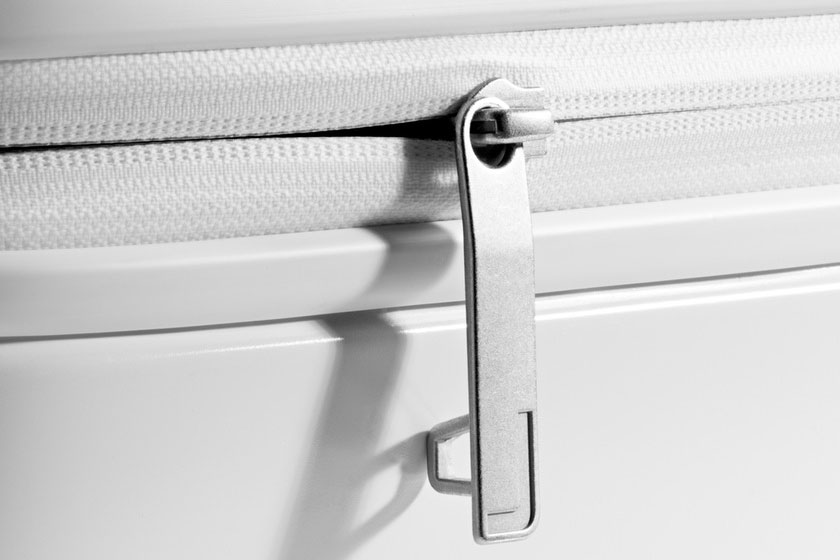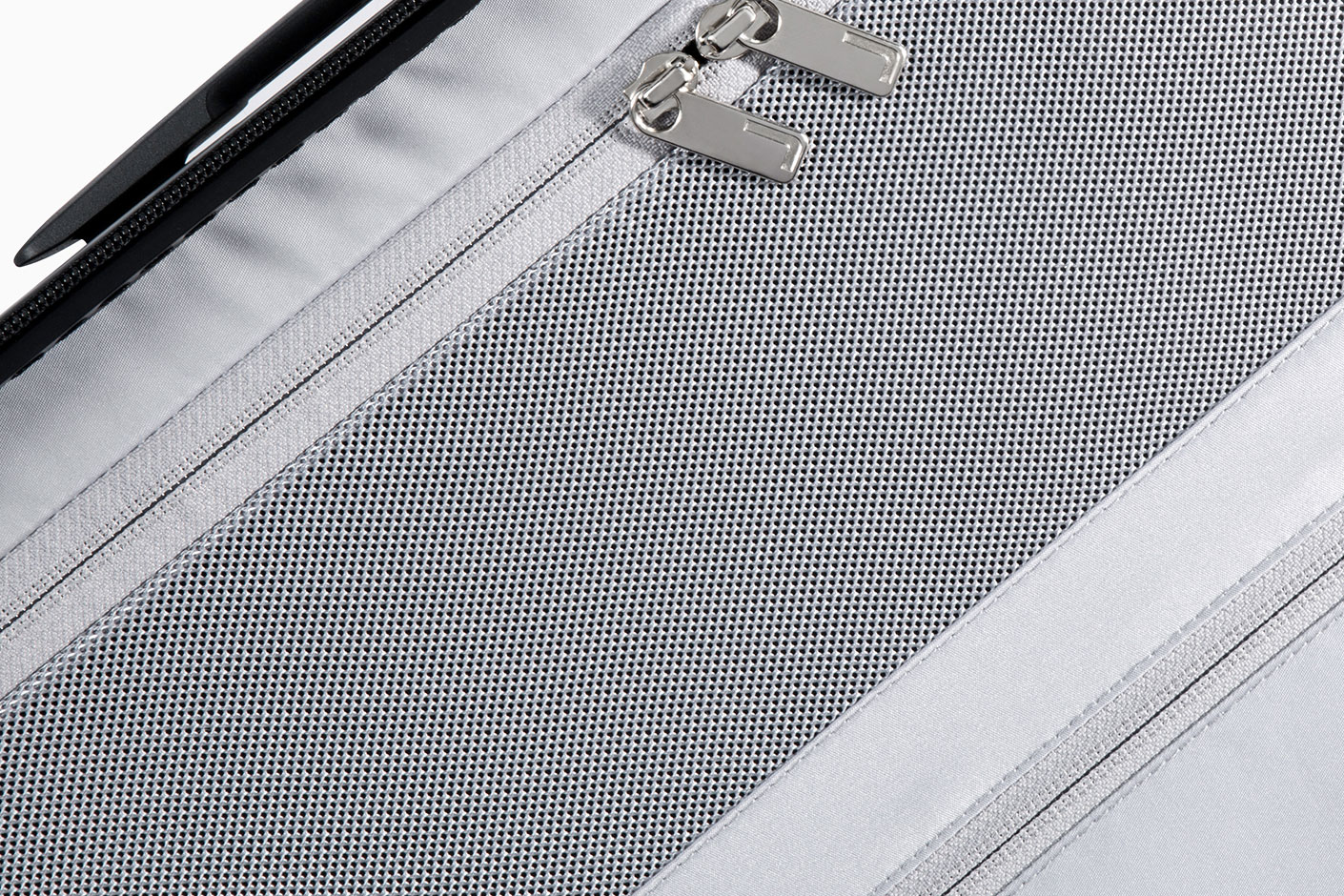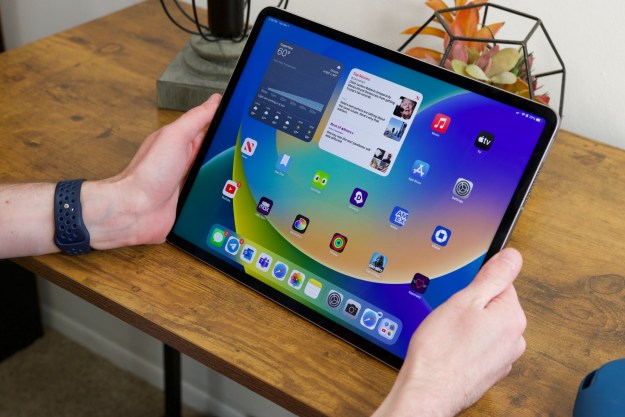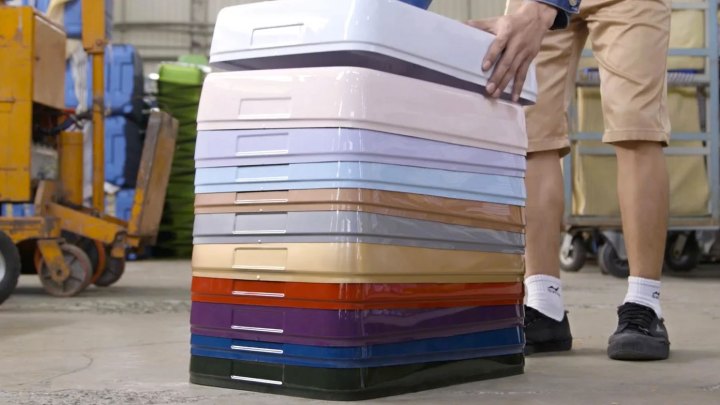
Update on May 21, 2018: Raden, citing new airline guidelines on smart luggages with batteries, has shut down its business. While it is fulfilling existing orders, it is not accepting refunds or exchanges, and support will be limited.
In the last two years, several startups have emerged with the goal of creating the ultimate smart luggage. These bags are chockfull of tech designed with today’s travel needs in mind, such as portable power and connected apps. A company called Raden is the latest to introduce luggage with brains, although CEO and founder Josh Udashkin doesn’t see himself as a tech startup, but a luggage company that’s utilizing tech to reinvent how people travel, and it starts with luggage that looks deceptively familiar, but discreetly intelligent.
Technology in disguise
At launch, Raden (a Japanese term to describe a form of decorative lacquered art) is introducing a 22-inch carry-on (A22, $295) and a 28-inch check case (A28, $395). Both are hard cases (available as a set for $595) made from a water-resistant polycarbonate (Makrolon), which provides strength without adding a lot of weight; the cases are 7.5 and 11.2 pounds, respectively. Available in black, white, navy blue, hunger green, light purple, light pink, and light blue, the bags’ rubberized waterproof zippers are color-matched to the shell. The rigid size of the 22-inch model is guaranteed to meet all carry-on rules. Udashkin said he opted not to go with a soft case because many people are moving toward hard cases for their next luggage purchases, according to trend research.

The sleek, minimalist design isn’t just stunning, it also hides the embedded technology. There is a 7,800mAh modular battery that powers two USB ports on the exterior of the bag, which can fully recharge a phone roughly four-times over. The unassuming handle also has a built-in scale that tells you how heavy the bag is after you fill it up. And Bluetooth low-energy (BLE) allows the bag to talk to your phone, and helps you locate it should it get lost.
“Everything about the bag is supposed to be stealth,” Udashkin told Digital Trends. “[What’s inside] is between you and the bag.”
Rechargeable batteries, USB ports, and even integrated scales, in the world of smart bags, aren’t particularly novel (you could say it’s not reinventing any wheels), but from a technology standpoint, the Raden mobile app (iOS only at launch) is perhaps the bag’s killer feature. Using Public APIs from other services, the app provides pertinent information for a travel itinerary: security check-in wait times, weather, traffic, public transportation, flight details, and Uber hailing. Tell the app the airline you’re flying and it will let you know if your bag is overweight. Raden also has a team that provides customer support, which you can access through the app, when issues like a lost bag arise. The app can pair up to 10 bags.
While Bluetooth Low Energy (BLE) lets you quickly locate the bag when you come near it. BLE is similar to iBeacon, where your iPhone performs a function when it comes near a transmitter, like the Starbucks app popping up on a lock screen when you enter a shop; it’s a short-distance technology that’s limited to 160 feet. That’s not helpful if your bag is stranded in a different terminal, though. ’s vision is that if there are more Raden bags floating around, it could create a crowdsourced GPS mesh network that covers a greater area. In concept it sounds great, but we doubt millions of Raden bags will pop up at airports overnight. But adds that more and more airports will start adding more beacon-based transmitters at airports soon, which the bags could utilize as a means of location awareness.
Disrupting the luggage industry
Technology plays a big role in the bags, but doesn’t view them as gadgets — hence, why he doesn’t really see Raden as a “smart bag” maker. There are no design cues that call attention to the tech inside. The closest competitor on the market, he said, is the Bluesmart, which offers nearly identical features ( points out that his A22 is priced lower). While says he has great respect for Bluesmart and other startups, he believes they are too niche, with a focus on tech first.
Raden wants to be selective and focus on the human experience, incorporating just enough ”empathetic tech” that would enhance the travel experience, not “pathetic tech” that add more stress. For example, Raden decided against a digital lock, which the Bluesmart uses, after the TSA advised against it; it also didn’t put in a Wi-Fi hotspot because most airports have them, and was advised by the TSA to not add too many wireless components, says.
“It still needs to function as a great bag, and the hardware is the Trojan horse,” Udashkin said.
For Udashkin, he wants a slice of the $40 billion luggage industry, and is using tech as a way to differentiate and compete against major manufacturers like Samsonite, Tumi, and Rimowa. In fact, Raden’s bags are made in the same Taiwanese factory that makes Tumi and Samsonite’s. Udashkin says the luggage industry is still dominated by people who are slow to embrace tech, which is why he – and other startups – see potential for disruption, just like Uber and Lyft have done with taxis, and Airbnb with hotels.
Pulling talent from all worlds
Form is important to , who comes from the retail world. He has employed talent from Tumi, Beats, Quirky, Bonobos, and Ammunition (the notable design firm behind the new Polaroid products). His uncle was in the luggage business, so you could say it runs in his family. Even a former secretary of transportation beta tested it with 100 investors and so-called influencers, and received regulatory approvals.
As for function, while demonstrates Raden can make a bag, the technology might make or break the company’s success. Udashkin has employed engineers with experience in tech, wearables, and e-commerce companies like Casper are consultants and investors.
In developing the bag, Udashkin looked at what he deems the “gold standards” of different areas of tech, such as Beats, Apple, and Sonos. “Raden, for me, is about creating that Macintosh-style of travel,” he said.
Udashkin also decided against the crowdfunding route and public feedback, choosing instead to develop the products under secrecy for two years and raise private funds. In addition to selling online, Udashkin, perhaps due to his years in retail, has opened an 8,000-square-foot retail shop in New York City’s SoHo area, and another location in Hong Kong later this year. As for the bags, Udashkin says the company is looking at more sizes and colors, but doesn’t have immediate plans to overload them with gizmos. More importantly, the app, which is the tech highlight, will evolve to include travel guides and other enhancements.
Editors' Recommendations
- One feature will make the Apple smart ring worth waiting for
- If this is what an Apple smart ring could look like, I need it right now
- Why I can’t wait for Apple to finally make a smart ring
- Withings doesn’t want you to look at its latest smart scale
- Apple might launch a HomePod smart display in 2024
